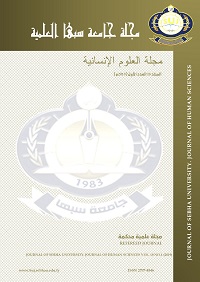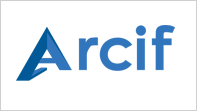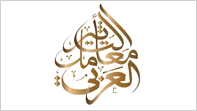The importance of language in the Arab media (discourse An analytical study on a sample of media professionals in the United Arab Emirates)
DOI:
https://doi.org/10.51984/johs.v20i2.1385Keywords:
language of discourse, media content, media discourse, influenceAbstract
The study aims to diagnose the authenticity of Arabic language in Arab societies, and to identify the language role in Arab media discourse. Hence the language functions as the medium of thought and expression where it has the capacity to influence and bring about growth in other societies. In addition to that it plays an important role in developing the skills of Arab media professionals enabling them to formulate an influential media discourse. The researcher uses a descriptive approach in order to describe the problem of the study and its analytical approach. There were a number of results.
The results show that (86%) of the sample believe in the importance of language in media discourse and its role in developing the skills of Arab media professionals, compared to (14%) who do not believe in its importance. The study shows that (89%) of the sample believe in the importance of Arabic language role in developing the skills of media professionals. In contrast, (11%) of the sample do not believe in the importance of its role. The results also show that (85%) of the sample prefer the Arabic language to foreign languages to study and learn media science, and also the results show that (50.5%) of the sample are specialists in public relations. In addition, the results show that (55%) of the sample believe that job employment is preferable to graduates from Arab programs, whereas (39.5%) believe that preference is given to graduates from English programs, and there are (5.5%) who see preference in employment is to graduates from other programs.
Downloads
Downloads
Published
Issue
Section
License
Journal of Humanities Policy on Intellectual Property and Plagiarism
1. Commitment to Intellectual Property and Ethics
The Journal of Humanities (JOHS) is fully committed to respecting intellectual property rights and aims to protect the originality and authentic work of authors who submit their manuscripts for publication. The journal takes a firm stand against articles that contain any form of plagiarism and emphasizes the need for all researchers to adhere to the highest ethical standards in scientific research.
2. Anti-Plagiarism Policy
The journal considers plagiarism a serious violation of academic ethics. Therefore, authors must ensure that their work is original and not plagiarized, and that any use of external sources is properly cited and documented according to correct academic standards.
-
Actions Taken: In the event that any plagiarism or academic theft is discovered in a submitted article, the editorial board will contact the author to request a formal explanation within a maximum period of two weeks from the date of notification.
-
Investigation and Decision: After receiving the explanation, the article will be referred to the journal's specialized committees, which will investigate the matter and take the necessary measures, which may include the permanent rejection of the article and the imposition of disciplinary actions.
3. Publication License and Author Rights
The journal adopts the Creative Commons license type Attribution-NonCommercial-NoDerivs 4.0 International (CC BY-NC-ND 4.0), which allows for the following:
-
Attribution: Users are entitled to cite the content published in the journal and use it in their work, provided that the original source and author are clearly credited.
-
Non-Commercial: The published content may not be used for any commercial purpose.
-
NoDerivs: It is not permitted to make any modifications, distortions, or to build derivative works from the published content.
Under this license, authors are required to complete an exclusive license agreement for the journal. Authors retain the rights to their research data and may reuse and share their work for scientific purposes with proper citation.







